
Valencia: Spain's Coastal Gem
Valencia, located on Spain's eastern coast, is a city that beautifully blends history, culture, and modernity. Known for its stunning beaches, delicious cuisine, and vibrant festivals, Valencia offers something for every type of traveler. The city is famous for its architectural marvels, such as the futuristic City of Arts and Sciences, designed by Santiago Calatrava. This complex includes an opera house, a science museum, and an aquarium, making it a must-visit for both art lovers and science enthusiasts. The historic old town, with its winding streets and charming squares, is perfect for leisurely strolls. Don't miss the Valencia Cathedral, home to what is believed to be the Holy Grail. Valencia is also the birthplace of paella, Spain's iconic rice dish. Foodies will delight in the city's bustling markets, like Mercado Central, where you can sample fresh produce and local delicacies. The annual Las Fallas festival, held in March, is a spectacular event featuring elaborate sculptures, fireworks, and parades, offering a unique glimpse into the local culture. The city's Mediterranean climate makes it an ideal destination year-round. Whether you're lounging on the sandy beaches of Malvarrosa, exploring the lush Turia Gardens, or cycling through the city’s extensive bike paths, Valencia promises a memorable experience.
Local tips in Valencia
- Visit in March to experience the vibrant Las Fallas festival.
- Try authentic paella at a local restaurant, especially near the Albufera Natural Park.
- Rent a bike to explore the city's extensive network of cycling paths.
- Take a stroll through the Turia Gardens, a lush park that runs through the city.
- Book tickets in advance for popular attractions like the City of Arts and Sciences.
Neighbourhoods in Valencia
Valencia: Spain's Coastal Gem
Valencia, located on Spain's eastern coast, is a city that beautifully blends history, culture, and modernity. Known for its stunning beaches, delicious cuisine, and vibrant festivals, Valencia offers something for every type of traveler. The city is famous for its architectural marvels, such as the futuristic City of Arts and Sciences, designed by Santiago Calatrava. This complex includes an opera house, a science museum, and an aquarium, making it a must-visit for both art lovers and science enthusiasts. The historic old town, with its winding streets and charming squares, is perfect for leisurely strolls. Don't miss the Valencia Cathedral, home to what is believed to be the Holy Grail. Valencia is also the birthplace of paella, Spain's iconic rice dish. Foodies will delight in the city's bustling markets, like Mercado Central, where you can sample fresh produce and local delicacies. The annual Las Fallas festival, held in March, is a spectacular event featuring elaborate sculptures, fireworks, and parades, offering a unique glimpse into the local culture. The city's Mediterranean climate makes it an ideal destination year-round. Whether you're lounging on the sandy beaches of Malvarrosa, exploring the lush Turia Gardens, or cycling through the city’s extensive bike paths, Valencia promises a memorable experience.
When is the best time to go to Valencia?
Iconic landmarks you can’t miss
Ciudad de las Artes y las Ciencias
Explore the architectural marvel of Ciudad de las Artes y las Ciencias, Valencia's hub of science, art, and entertainment.

Oceanogràfic
Explore Oceanogràfic in Valencia, Europe's largest aquarium, home to thousands of marine species and captivating underwater experiences for all ages.

Serranos Towers
Explore the Serranos Towers in Valencia, a magnificent medieval landmark steeped in history and offering stunning city views.
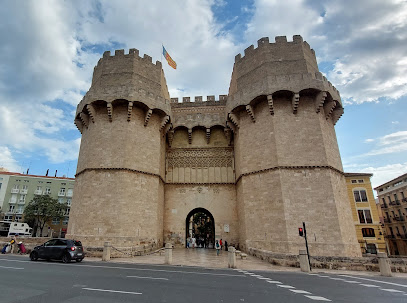
Jardín del Turia
Discover the lush landscapes and cultural richness of Jardín del Turia, Valencia's iconic park and garden, perfect for relaxation and exploration.
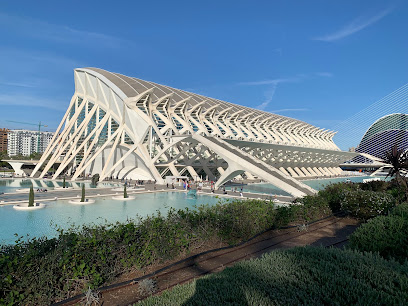
Mercat de Colón
Explore Mercat de Colón: Valencia's vibrant market showcasing fresh food, local delicacies, and stunning architecture.

Plaça de la Verge
Explore the historic Plaça de la Verge in Valencia, a vibrant square surrounded by stunning architecture and rich cultural heritage.
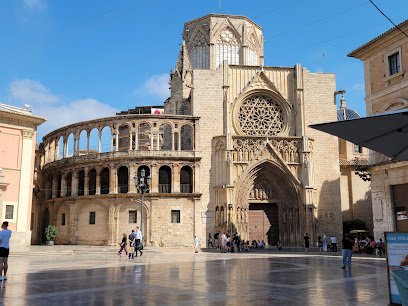
Plaça de la Reina
Explore the vibrant Plaça de la Reina in Valencia, a historical square brimming with culture, stunning architecture, and delightful culinary experiences.
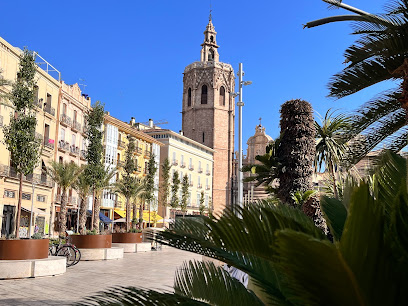
La Lonja de la Seda de Valencia
Discover the architectural splendor and rich history of La Lonja de la Seda, a UNESCO World Heritage site in Valencia.
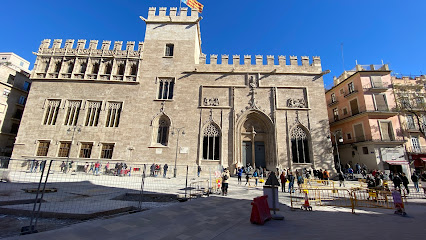
Valencia Cathedral
Explore the stunning Valencia Cathedral, a masterpiece of architecture in the heart of Ciutat Vella, where history and spirituality come alive.

Plaça de Bous de València
Explore the Plaça de Bous de València, a stunning bullring blending rich history with vibrant cultural events in the heart of Valencia.

Quart Towers
Explore Valencia's iconic Quart Towers, a historical landmark that showcases stunning Gothic architecture and offers breathtaking city views.
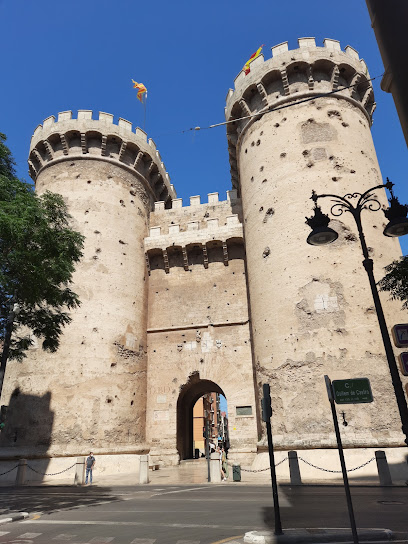
Església de Sant Nicolau de Bari i Sant Pere Màrtir
Explore the stunning Església de Sant Nicolau de Bari i Sant Pere Màrtir, a historic Catholic church in Valencia, rich in culture and architectural beauty.
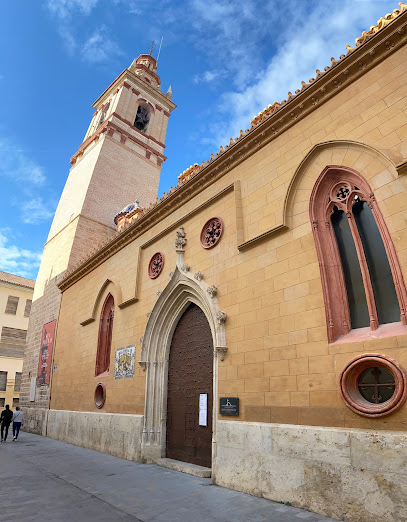
Porta de la Mar
Discover the historical significance of Porta de la Mar, Valencia's grand gateway that reflects the city's architectural beauty and vibrant culture.
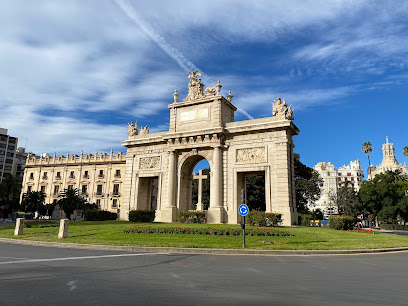
El Micalet
Discover El Micalet, Valencia's iconic bell tower, a historical landmark offering stunning views and rich cultural heritage in the heart of Ciutat Vella.
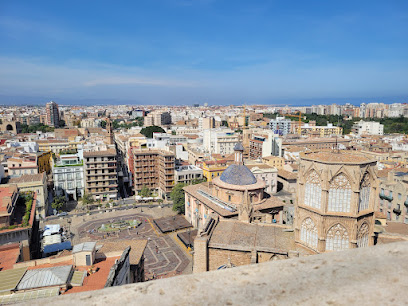
Basílica de la Mare de Déu dels Desemparats
Explore the breathtaking Basílica de la Mare de Déu dels Desemparats, a stunning baroque basilica and the heart of Valencia's spiritual and cultural life.

Unmissable attractions to see
Ciudad de las Artes y las Ciencias
Discover the wonders of science and marine life at the Ciudad de las Artes y las Ciencias, a stunning architectural marvel in Valencia, Spain.
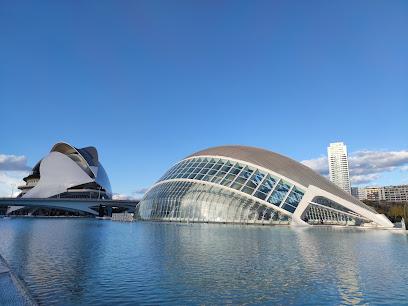
Oceanogràfic
Explore the largest aquarium in Europe at Oceanogràfic Valencia, home to thousands of marine species and breathtaking underwater experiences.
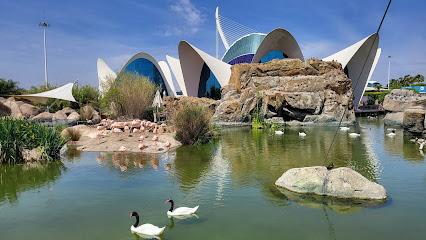
Bioparc Valencia
Discover the breathtaking wildlife and immersive habitats at Bioparc Valencia, where conservation meets adventure in a stunning animal park.
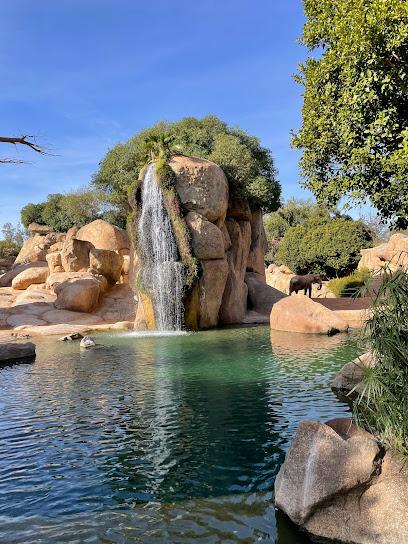
Museo de las Ciencias Príncipe Felipe
Discover the interactive world of science at Museo de las Ciencias Príncipe Felipe, a must-visit museum in Valencia's Ciudad de las Artes y de las Ciencias.
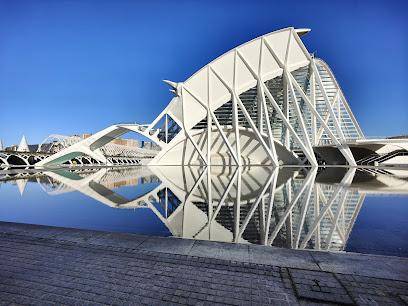
Serranos Towers
Explore the majestic Serranos Towers in Valencia, a historical monument offering stunning views and a glimpse into the city's rich medieval past.
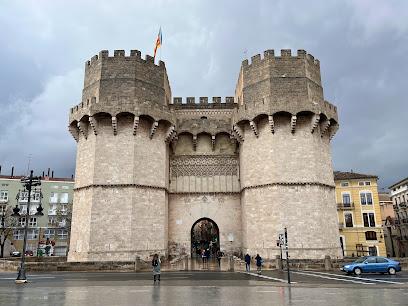
Jardín del Turia
Explore the lush landscapes of Jardín del Turia, Valencia's serene park where nature meets culture in a stunning urban oasis.
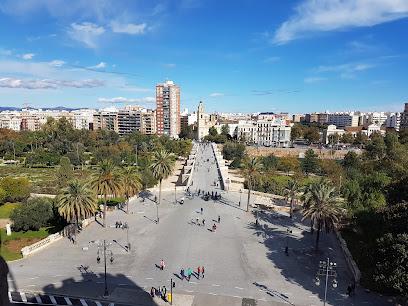
Mercat de Colón
Explore Mercat de Colón, Valencia's historic market, where fresh produce meets local delicacies in a stunning architectural setting.

Mestalla Stadium
Explore Mestalla Stadium, a historic landmark in Valencia, where football passion meets rich cultural heritage and unforgettable experiences await.
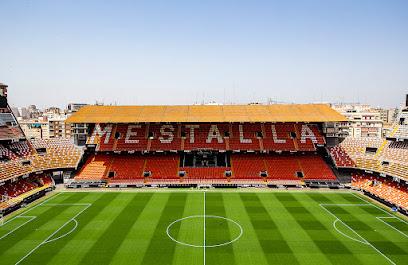
Metropolitan Cathedral–Basilica of the Assumption of Our Lady of Valencia
Explore the stunning Metropolitan Cathedral of Valencia, a masterpiece of Gothic architecture and a key cultural landmark in the heart of the city.
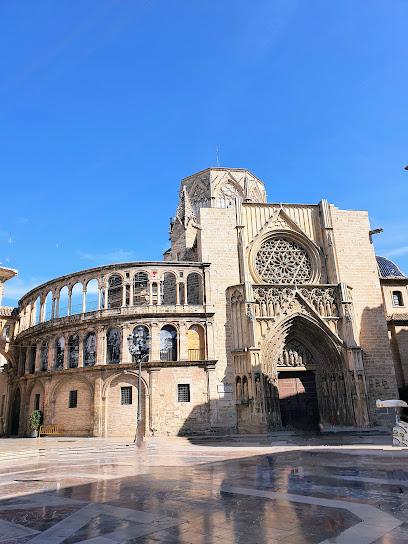
La Lonja de la Seda de Valencia
Explore La Lonja de la Seda, Valencia's Gothic marvel and UNESCO World Heritage Site, steeped in history and architectural beauty.
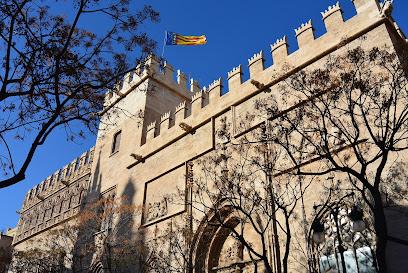
Gulliver park
Explore Gulliver Park in Valencia, a magical playground inspired by Gulliver's Travels, offering fun and adventure for families and children of all ages.
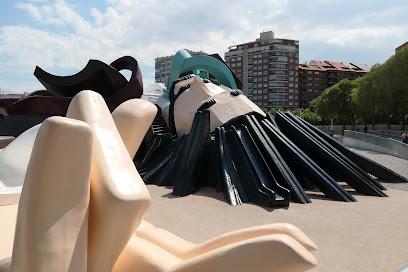
Coves de Sant Josep
Experience the breathtaking beauty of Coves de Sant Josep, where nature's artistry meets rich geological history in La Vall d'Uixó, Spain.
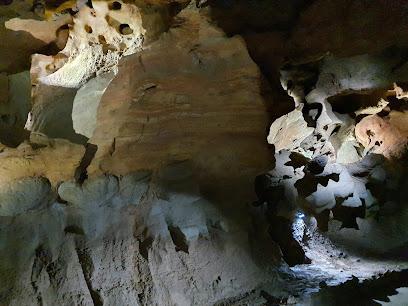
Plaza de Toros de Valencia
Discover the rich history and vibrant culture at the Plaza de Toros de Valencia, a stunning bullring and event venue in the heart of the city.
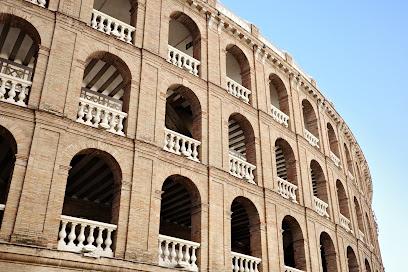
Jardines del Real / Viveros
Explore Jardines del Real, Valencia's enchanting urban park with lush gardens, historical monuments, and serene pathways for a tranquil escape.
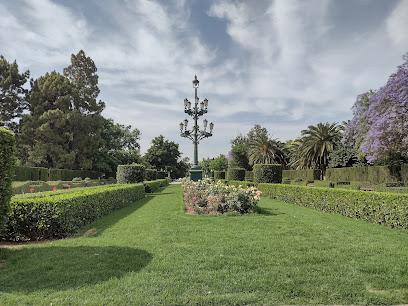
Spain Free Tours
Explore Valencia's rich culture and history with Spain Free Tours, offering engaging guided experiences suitable for all ages.
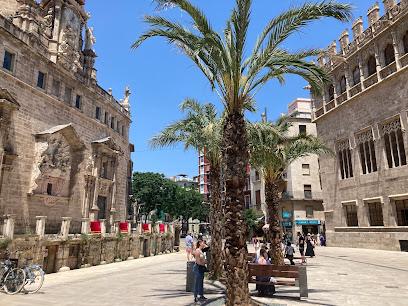
Essential places to dine
Puerta del Mar
Discover the essence of Mediterranean cuisine at Puerta del Mar in Valencia – where every dish tells a story.
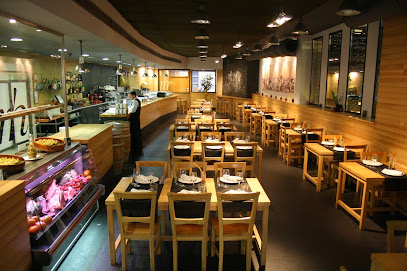
Asador El Porteño
Experience authentic Argentinian flavors at Asador El Porteño in Valencia—where tradition meets culinary excellence.
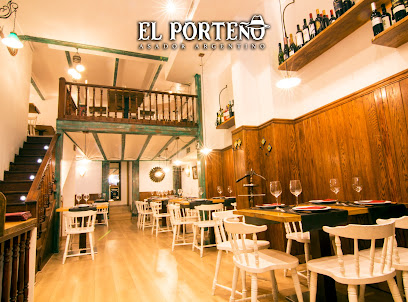
Pelayo Gastro Trinquet
Experience authentic Valencian flavors at Pelayo Gastro Trinquet – where tradition meets innovation in every delicious dish.
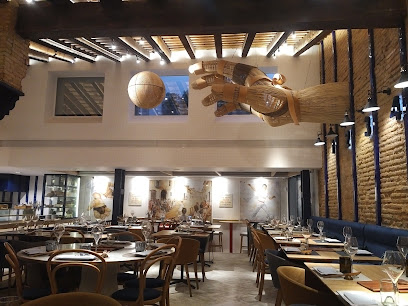
Sagardi Valencia Centro
Experience authentic Basque cuisine at Sagardi Valencia Centro—where tradition meets modernity in every flavorful bite.
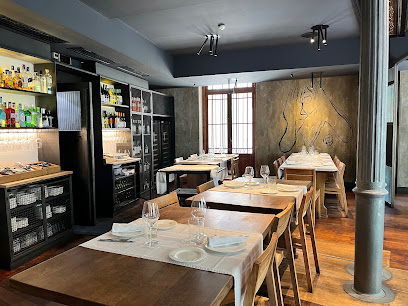
Casa Montaña
Discover authentic Spanish tapas at Casa Montaña in Valencia - where tradition meets modern flavor in an inviting atmosphere.
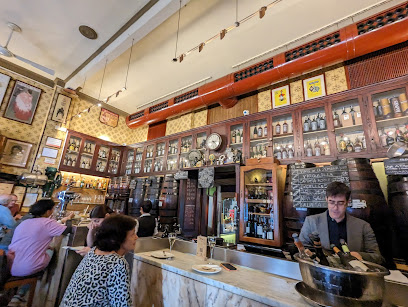
Canalla Bistro by Ricard Camarena
Discover culinary innovation at Canalla Bistro in Valencia, where Mediterranean flavors meet global inspiration for an unforgettable dining experience.
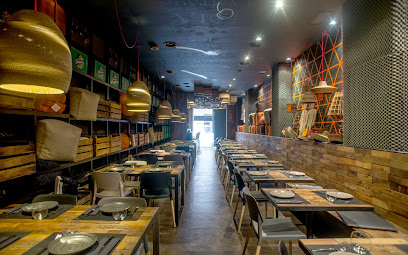
Le Favole Ristorante
Savor authentic Italian cuisine at Le Favole Ristorante in Valencia's historic Ciutat Vella - where every bite tells a story.
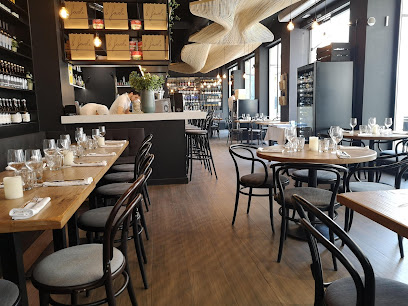
Restaurant Secret
Discover exquisite Mediterranean flavors at Restaurant Secret in Valencia's charming Ciutat Vella district.
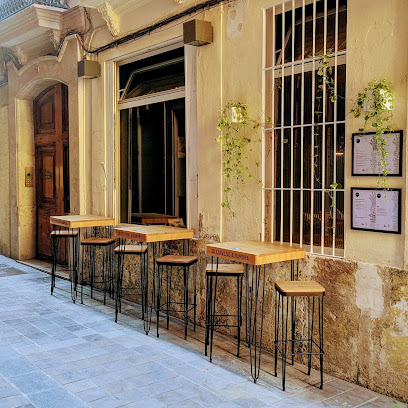
Restaurante Asador Argentino Gordon 10
Discover authentic Argentinian flavors at Restaurante Asador Argentino Gordon 10 in Valencia—where every meal is a celebration of taste.
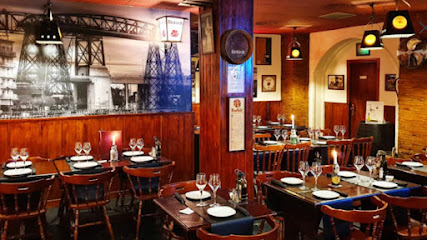
Navarro
Savor exquisite Mediterranean cuisine at Navarro in Valencia—where authentic flavors meet culinary excellence.
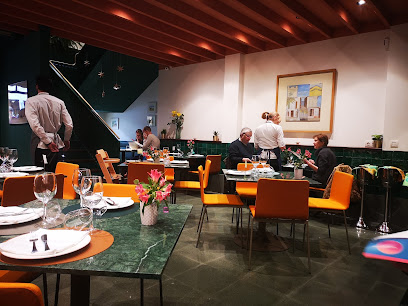
Tanto Monta...
Discover authentic Spanish cuisine at Tanto Monta in Valencia – where every dish tells a story.
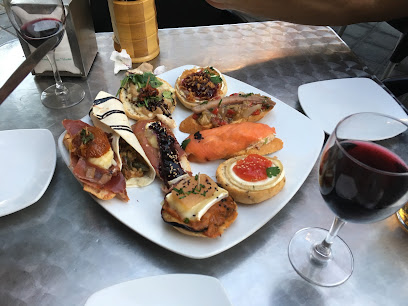
Portolito Centro
Discover the vibrant flavors and lively atmosphere at Portolito Centro in Valencia's historic Ciutat Vella.
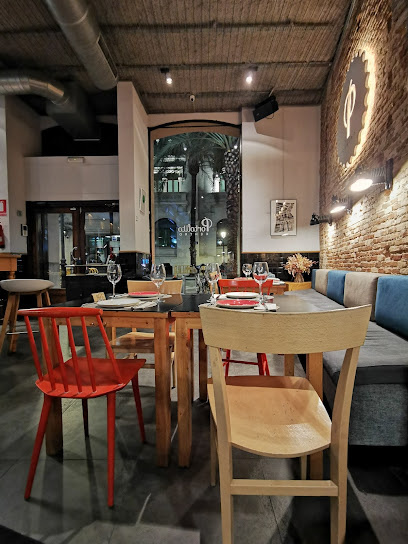
Tasca Hogan “La Coveta”
Discover authentic tapas at Tasca Hogan 'La Coveta', where vibrant flavors meet a lively atmosphere in Valencia's Ciutat Vella.
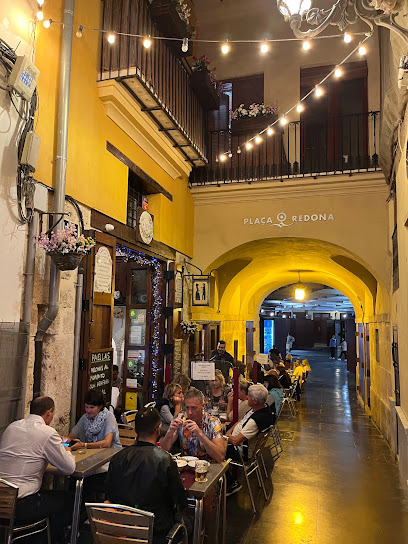
Restaurante Vuelve Carolina
Discover exquisite Spanish cuisine and innovative cocktails at Restaurante Vuelve Carolina in Valencia's historic Ciutat Vella.
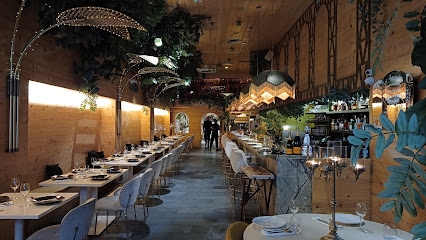
Restaurant-Arrosseria Flor de València
Experience authentic Mediterranean cuisine at Restaurant-Arrosseria Flor de València - home of exquisite rice dishes and traditional flavors.
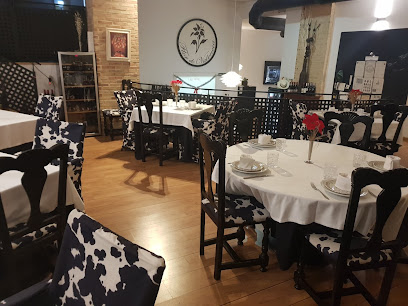
Markets, malls and hidden boutiques
Centre Comercial Saler
Explore Valencia's Centre Comercial Saler for a perfect blend of shopping, dining, and entertainment in a vibrant atmosphere.
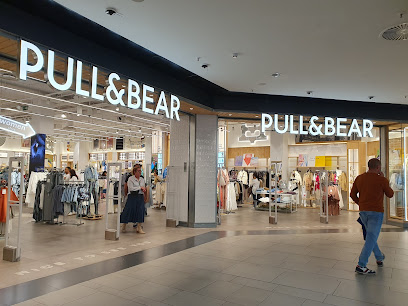
Flying Tiger Copenhagen
Explore the whimsical world of Flying Tiger Copenhagen in Valencia - a unique gift shop filled with affordable treasures for everyone.
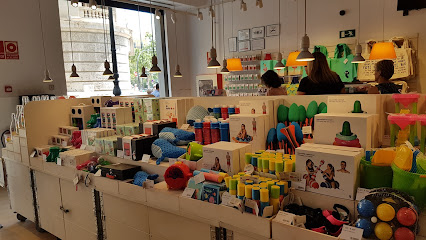
Shopping Center Valencia
Discover a shopping paradise at Shopping Center Valencia, where variety meets culture in the heart of the city.
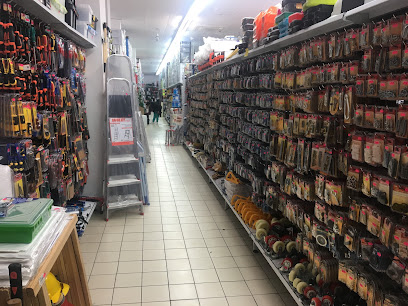
CASA València Centre
Discover unique gifts and stylish home goods at CASA València Centre, a must-visit destination in the heart of Valencia's Eixample district.
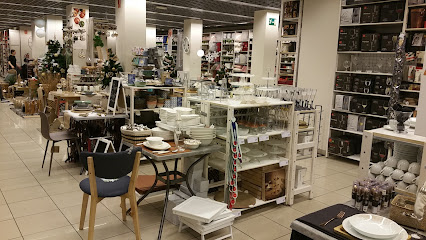
Gnomo Ruzafa
Explore Gnomo Ruzafa, your go-to gift shop in Valencia for unique souvenirs and local artisan treasures.
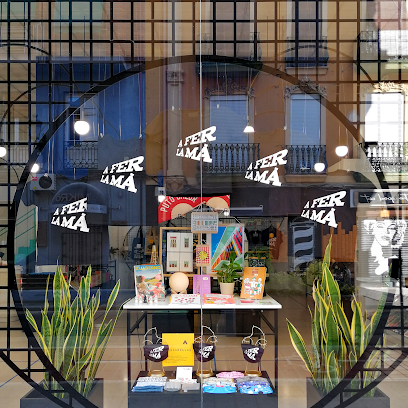
Place
Discover a unique general store in Valencia, filled with fashion accessories, children's clothing, and local crafts that embody the city's vibrant spirit.
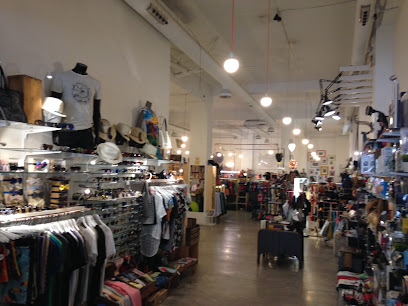
Mon Petit Secret… vintage
Uncover unique vintage clothing, exquisite costume jewelry, and fashionable accessories at Mon Petit Secret in Valencia's Ciutat Vella.
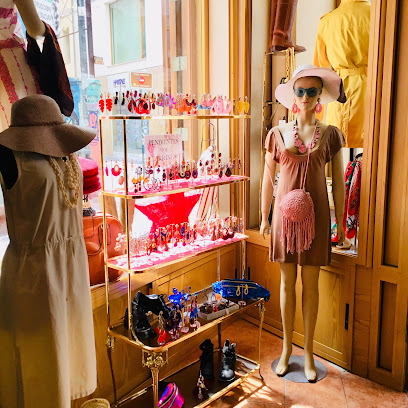
Simple
Explore Valencia's charm at Simple, a gift shop offering unique souvenirs and local crafts that capture the spirit of the city.
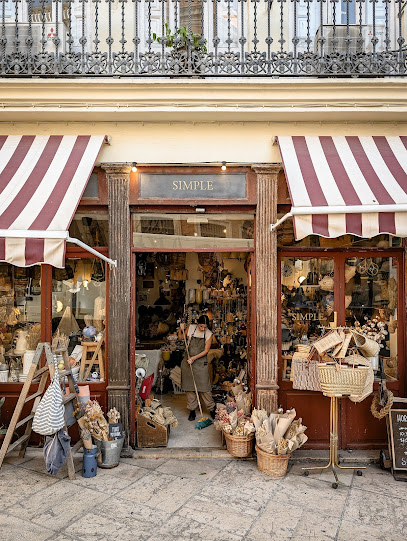
Santo Spirito Vintage
Explore Santo Spirito Vintage in Valencia for unique vintage finds and an unforgettable shopping experience amidst a charming atmosphere.
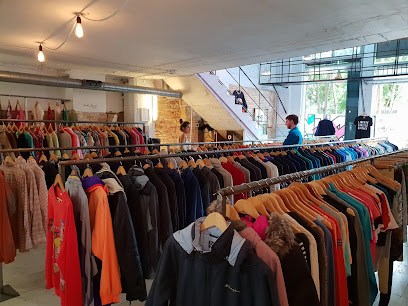
Shopping Center Valencia III
Experience the vibrant shopping and dining scene at Shopping Center Valencia III, where culture and modernity blend seamlessly for an unforgettable visit.
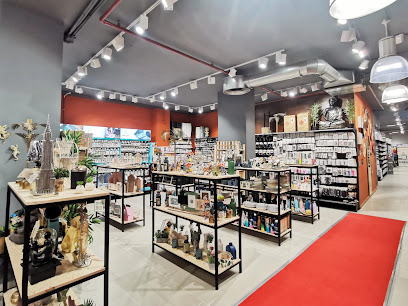
La Postalera
Discover unique souvenirs and local crafts at La Postalera, Valencia's charming souvenir store in the heart of Ciutat Vella.
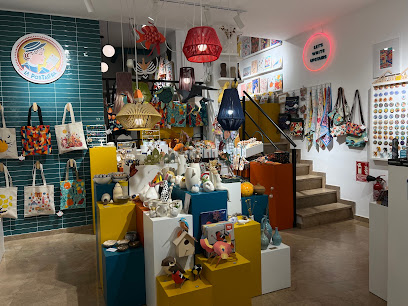
SoHo del Carmen
Explore SoHo del Carmen in Valencia for an unforgettable vintage shopping experience with unique treasures waiting to be discovered.
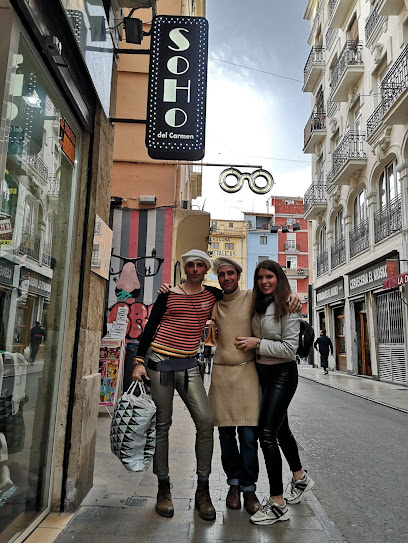
WAKANDA
Discover unique gifts and local artistry at Wakanda, the ultimate shopping destination in Valencia for tourists seeking memorable souvenirs.
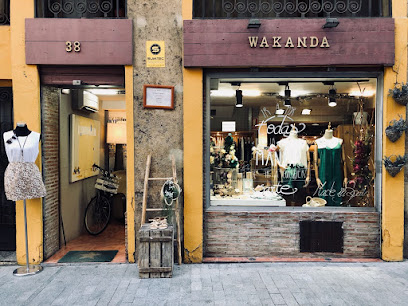
Atypical València
Explore Atypical València, a vibrant store in Ciutat Vella showcasing unique local designs and products that capture the essence of Valencia.
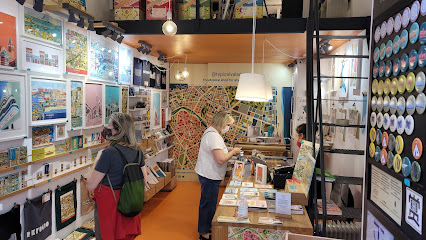
LLADRÓ Boutique Valencia
Explore the exquisite craftsmanship of LLADRÓ at its Valencia boutique, showcasing stunning porcelain art and unique chinaware creations.
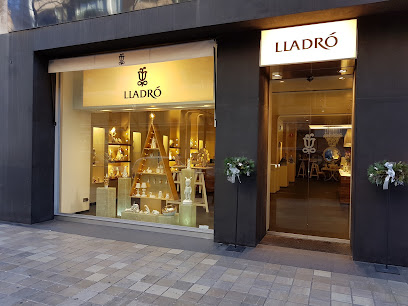
Essential bars & hidden hideouts
St. Patrick's
Experience the warmth of Irish culture at St. Patrick's, a beloved pub in Valencia with traditional food, drinks, and a lively atmosphere.
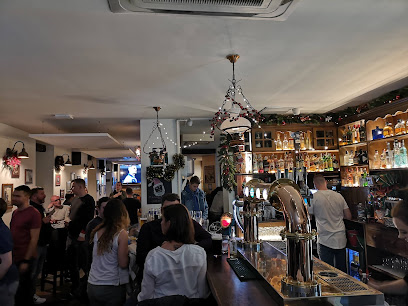
Café Negrito
Discover the lively ambiance and delightful offerings at Café Negrito, a top pub and café in the heart of Valencia's Ciutat Vella.
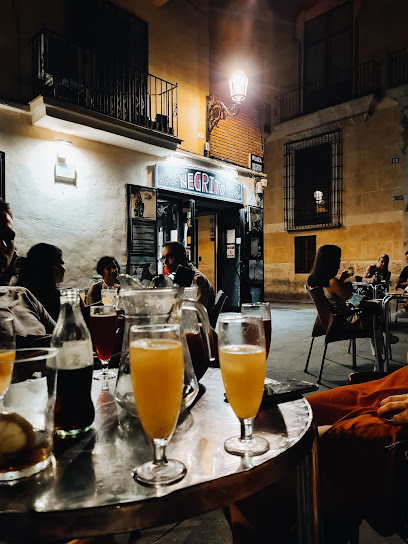
HAWAIKA
Discover Hawaika, Valencia's lively cocktail bar offering exotic drinks, refreshing juices, and delightful ice creams to elevate your night out.
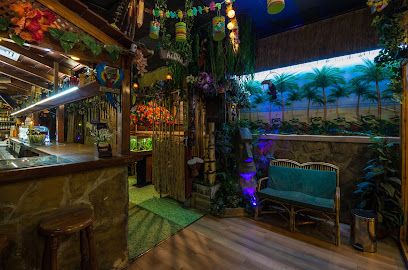
Unic Daily Goodness
Discover the vibrant nightlife of Valencia at Unic Daily Goodness, where local flavors and a lively atmosphere come together at this popular pub.
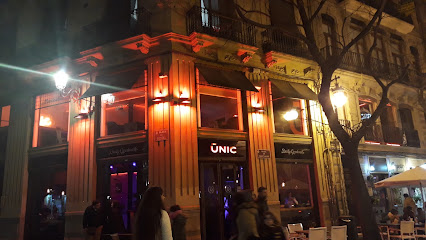
Café Madrid Valencia
Discover Café Madrid in Valencia: a cocktail bar where unique mixes and a lively atmosphere create unforgettable nights.
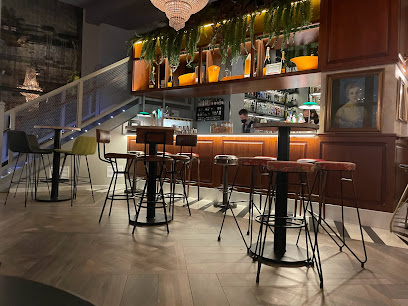
The Jungle
Discover The Jungle, Valencia's ultimate cocktail bar and tapas lounge, blending vibrant atmosphere with exquisite drinks and local flavors.
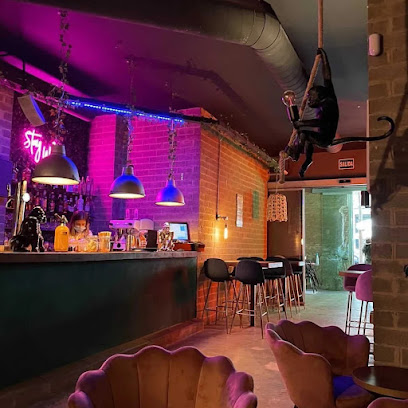
Bar Los Picapiedra
Experience the vibrant flavors of Valencia at Bar Los Picapiedra, where exquisite tapas and an impressive wine selection await in a lively ambiance.
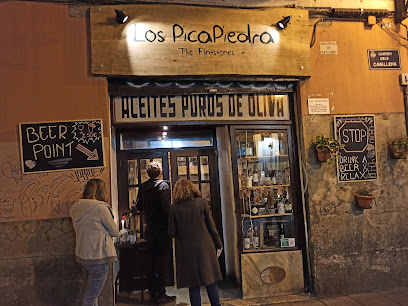
Mulligan's
Experience the best of Irish hospitality and vibrant local culture at Mulligan's in Valencia, a must-visit gastropub for every traveler.
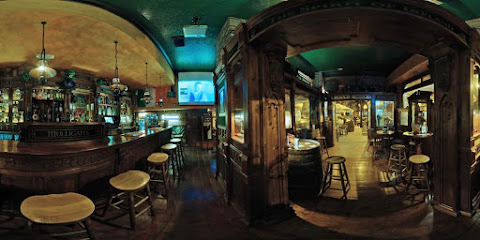
Cuatro Monos
Experience the vibrant nightlife of Valencia at Cuatro Monos, a lively piano bar and cocktail lounge offering exquisite drinks and live music.
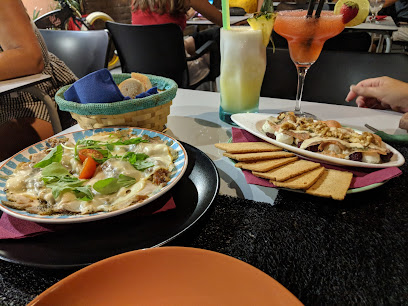
La Catrina Cocktails & Rock
Discover Valencia's nightlife at La Catrina Cocktails & Rock, a lively cocktail bar offering a vibrant atmosphere and expertly crafted drinks.
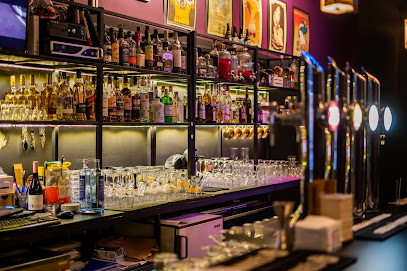
La Bella De Cadiz
Discover La Bella De Cadiz, Valencia's vibrant cocktail bar offering a unique blend of innovative drinks and a lively atmosphere in the heart of L'Eixample.
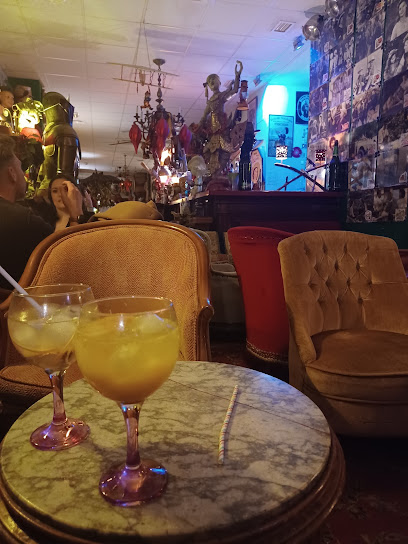
Christopher cócteles
Discover the unique flavors and vibrant nightlife at Christopher Cócteles, Valencia's premier cocktail bar, perfect for every cocktail enthusiast.
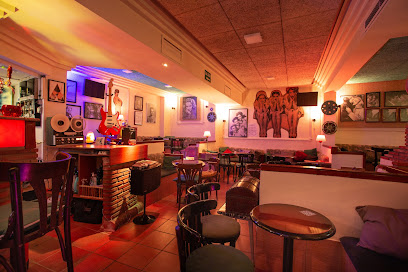
Pub Down Monkey Business
Experience the lively ambiance and exquisite cocktails at Pub Down Monkey Business in Valencia's Mercado de Colón, a must-visit for nightlife enthusiasts.
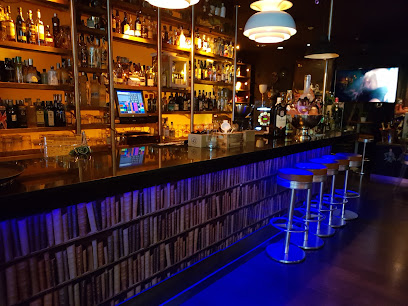
The Lounge
Experience the vibrant atmosphere of The Lounge, Valencia's top sports bar blending Irish pub charm with delicious tapas and local brews.
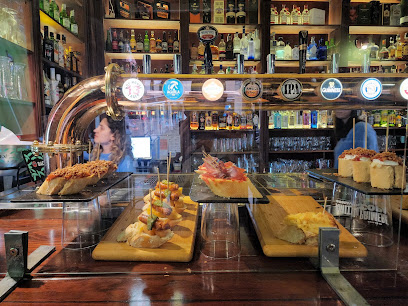
Local Phrases
-
- HelloHola
[OH-lah] - GoodbyeAdiós
[ah-DYOHSS] - YesSí
[SEE] - NoNo
[NOH] - Please/You're welcomePor favor/De nada
[por fah-VOHR/deh NAH-dah] - Thank youGracias
[GRAH-thyahss] - Excuse me/SorryPerdón/Lo siento
[pehr-DOHN/loh SYEHN-toh] - How are you?¿Cómo estás?
[KOH-moh ehs-TAHSS?] - Fine. And you?Bien. ¿Y tú?
[BYEHN. ee too?] - Do you speak English?¿Hablas inglés?
[AH-blahs een-GLAYS?] - I don't understandNo entiendo
[NOH ehn-TYEN-doh]
- HelloHola
-
- I'd like to see the menu, pleaseMe gustaría ver la carta, por favor
[meh goo-stah-REE-ah behr lah KAR-tah, por fah-VOHR] - I don't eat meatNo como carne
[NOH KOH-moh KAR-neh] - Cheers!¡Salud!
[SAH-lood] - I would like to pay, pleaseMe gustaría pagar, por favor
[meh goo-stah-REE-ah pah-GAR, por fah-VOHR]
- I'd like to see the menu, pleaseMe gustaría ver la carta, por favor
-
- Help!¡Ayuda!
[ah-YOO-dah] - Go away!¡Vete!
[VEH-teh] - Call the Police!¡Llama a la Policía!
[YAH-mah ah lah po-lee-SEE-ah] - Call a doctor!¡Llama a un médico!
[YAH-mah ah oon MEH-dee-koh] - I'm lostEstoy perdido
[eh-STOY pehr-DEE-doh] - I'm illEstoy enfermo
[eh-STOY ehn-FEHR-moh]
- Help!¡Ayuda!
-
- I'd like to buy...Me gustaría comprar...
[meh goo-stah-REE-ah kohm-PRAR] - I'm just lookingSolo estoy mirando
[SO-loh eh-STOY mee-RAN-doh] - How much is it?¿Cuánto cuesta?
[KWAHN-toh KWEHS-tah?] - That's too expensiveEs demasiado caro
[ehs deh-ma-SYA-doh KAH-roh] - Can you lower the price?¿Puedes bajar el precio?
[PWEH-dehs BAH-hahr ehl PREH-syoh?]
- I'd like to buy...Me gustaría comprar...
-
- What time is it?¿Qué hora es?
[keh OH-rah ehs?] - It's one o'clockEs la una
[ehs lah OO-nah] - Half past (10)Y media (10)
[ee MEH-dee-ah (DEEZ)] - MorningMañana
[mah-NYAH-nah] - AfternoonTarde
[TAHR-deh] - EveningNoche
[NOH-cheh] - YesterdayAyer
[AH-yehr] - TodayHoy
[OY] - TomorrowMañana
[mah-NYAH-nah] - 1Uno
[OO-noh] - 2Dos
[DOHS] - 3Tres
[TREHS] - 4Cuatro
[KWAH-troh] - 5Cinco
[SEEN-koh] - 6Seis
[SAYSS] - 7Siete
[SYE-teh] - 8Ocho
[OH-choh] - 9Nueve
[NWEH-veh] - 10Diez
[DYETH]
- What time is it?¿Qué hora es?
-
- Where's a/the...?¿Dónde está...?
[DOHN-deh ehs-TAH?] - What's the address?¿Cuál es la dirección?
[KWAHL ehs lah dee-rehk-SYOHN?] - Can you show me (on the map)?¿Puedes enseñarme (en el mapa)?
[PWEH-dehs ehn-seh-NYAR-meh (ehn ehl MAH-pah)?] - When's the next (bus)?¿Cuándo es el próximo (autobús)?
[KWAHN-doh ehs ehl PROH-ksee-moh (ow-toh-BOOS)?] - A ticket (to ....)Un billete (a ....)
[oon bee-YEH-teh (ah ....)]
- Where's a/the...?¿Dónde está...?
History of Valencia
-
Valencia, originally named Valentia Edetanorum, was founded by the Romans in 138 BC. It served as a retirement settlement for soldiers who had fought in the Roman army. The city's strategic location on the banks of the Turia River made it an ideal spot for trade and agriculture.
-
After the fall of the Roman Empire, Valencia came under the rule of the Visigoths. In the 8th century, the Moors conquered the city, introducing significant architectural, cultural, and agricultural advancements. The Moors renamed the city Balansiya, and their influence is still visible in the city's layout and many historic buildings.
-
In 1238, King James I of Aragon reclaimed Valencia from the Moors. This marked a significant turning point in the city's history, leading to the establishment of the Kingdom of Valencia. The Christian conquest brought in a wave of settlers from Catalonia and Aragon, and the city began to prosper once again under Christian rule.
-
Valencia experienced a Golden Age during the 15th and early 16th centuries, becoming a major economic and cultural center in the Mediterranean. This period saw the construction of iconic buildings such as the Silk Exchange (La Lonja de la Seda), which is now a UNESCO World Heritage site. The city's wealth attracted artists, scholars, and merchants from across Europe.
-
The early 18th century brought turmoil to Valencia during the War of Spanish Succession. The city initially supported the Habsburg claimant, Archduke Charles, but was later captured by Bourbon forces loyal to Philip V. The subsequent Nueva Planta decrees abolished the Kingdom of Valencia's autonomous institutions, integrating it into a more centralized Spanish state.
-
The 19th century saw Valencia's transformation into an industrial hub. The development of railways and the expansion of the port facilitated trade and commerce. Despite political instability and social unrest, the city continued to grow, laying the groundwork for modern urbanization.
-
During the Spanish Civil War (1936-1939), Valencia became the capital of the Republican government. The city endured significant hardships, including bombings and food shortages. Post-war, Valencia faced repression under Franco's regime but gradually recovered, eventually becoming a vibrant cultural and economic center in democratic Spain.
-
In recent decades, Valencia has undergone a cultural and architectural renaissance. The construction of the City of Arts and Sciences, designed by Santiago Calatrava, has become a symbol of the city's forward-looking spirit. Valencia continues to celebrate its rich history while embracing contemporary innovation and culture.
Valencia Essentials
-
Valencia is well-connected both domestically and internationally. The city is serviced by Valencia Airport (VLC), which is about 8 km west of the city center. The airport handles flights from several major European cities. From the airport, you can reach the city center by metro (lines 3 and 5), taxi, or bus. Valencia is also accessible by high-speed train (AVE) from Madrid and other major Spanish cities, as well as by regional trains. Additionally, Valencia is well-connected by bus services and has a large port for those arriving by ferry or cruise.
-
Valencia has an extensive public transport network, including buses, trams, and a metro system. The metro and tram lines are efficient for getting around the city and the surrounding areas. Buses cover areas that the metro may not reach. Taxis are also readily available and relatively affordable. For those who prefer cycling, Valencia has a public bike-sharing system called Valenbisi. Renting a car can be useful for exploring the surrounding regions, but parking in the city center can be challenging.
-
The official currency of Spain is the Euro (EUR). Credit and debit cards are widely accepted in most establishments, including hotels, restaurants, and shops. However, it is advisable to carry some cash for smaller purchases, especially in local markets or smaller establishments. ATMs are plentiful throughout Valencia, so withdrawing cash should not be an issue.
-
Valencia is generally a safe city for tourists. However, like any major city, it is important to take standard precautions. Be cautious with your belongings in crowded areas such as markets and public transport, as pickpocketing can occur. Avoid walking alone in poorly lit areas at night. Specific areas to be cautious in include El Cabanyal and some parts of Ruzafa at night. Always stay aware of your surroundings.
-
In case of emergency, dial 112 for police, fire, or medical assistance. Valencia has several hospitals and clinics that can provide emergency medical care. Pharmacies are also widely available and can assist with minor health issues. It is recommended to have travel insurance that covers medical emergencies. Familiarize yourself with the location of the nearest embassy or consulate if you are an international traveler.
-
Fashion: Do dress comfortably but stylishly. Light clothing is recommended during the summer, but bring a light jacket for cooler evenings. Avoid beachwear outside of beach areas. Religion: Do respect local customs and traditions, especially when visiting religious sites. Dress modestly and cover shoulders and knees. Public Transport: Do be respectful to fellow passengers. Offer your seat to elderly or pregnant passengers. Don't eat or drink on public transport. Greetings: Do greet people with a handshake. In social settings, a kiss on each cheek is common. Eating & Drinking: Do try local dishes such as paella and horchata. Don't tip excessively; rounding up the bill or leaving a small amount is sufficient.
-
To experience Valencia like a local, visit the Central Market (Mercado Central) to experience the vibrant food scene and fresh local produce. Take a stroll through the Turia Gardens, a park created in a former riverbed that stretches across the city. Enjoy the traditional festival of Las Fallas if you're visiting in March. For a unique dining experience, try the traditional dish of paella in one of the local restaurants. Engage with locals, as they are friendly and often willing to share recommendations and insights about their city.
Trending Landmark in Valencia
-
Ciudad de las Artes y las Ciencias
-
Oceanogràfic
-
Serranos Towers
-
Jardín del Turia
-
Mercat de Colón
-
Plaça de la Verge
-
Plaça de la Reina
-
La Lonja de la Seda de Valencia
-
Valencia Cathedral
-
Plaça de Bous de València
-
Quart Towers
-
Església de Sant Nicolau de Bari i Sant Pere Màrtir
-
Porta de la Mar
-
El Micalet
-
Basílica de la Mare de Déu dels Desemparats
Nearby Cities to Valencia
-
Things To Do in Teruel
-
Things To Do in Alicante
-
Things To Do in Murcia
-
Things To Do in Tarragona
-
Things To Do in Zaragoza
-
Things To Do in Lleida
-
Things To Do in Palma de Mallorca
-
Things To Do in Huesca
-
Things To Do in Madrid
-
Things To Do in Barcelona
-
Things To Do in Toledo
-
Things To Do in Almeria
-
Things To Do in Segovia
-
Things To Do in Andorra la Vella
-
Things To Do in Escaldes-Engordany

















